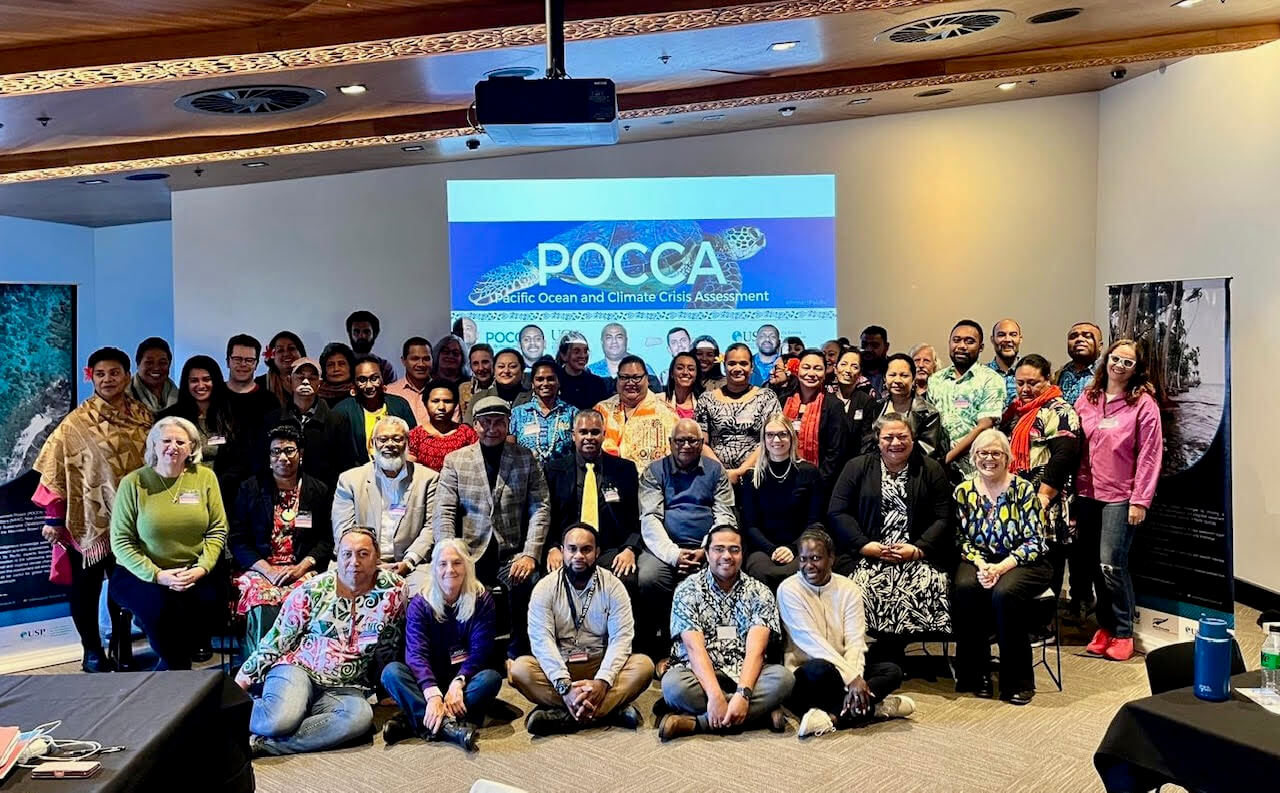Related News

If our ancestors can find local solutions to ensure the safety of our people what about us?
Those were the words of Dr Joeli Veitayaki in his opening remarks of the Pacific Ocean & Climate Crisis Assessment Third Authors conference currently underway at the University of Canterbury.
Whilst addressing the 60 plus authors attending the conference, Dr Veitayaki reminded the attendees of the important work that has been done and still needs to be done to ensure the protection of our people, resources and environment.
“We should get our people ready while there is still time and we can still do the work despite the adversity,” Dr Veitayaki said.
As the project heads towards its final phase, Dr Veitayaki added that the collected voices of our indigenous people are now more important than ever.
With the continuation of presentations from authors on the progress of their various chapters for the POCCA report, Rebekah Robertson, the Adviser-Climate Change and Environment for the New Zealand’s Ministry of Foreign Affairs and Trade (MFAT) expressed her gratitude for the hard work that has been done by the team in documenting the voices of Pacific Island communities.
“I think it’s been really exciting to see the progress particularly with the teams having been in country and now able to incorporate all those case studies and I think that’s the really special part of POCCA where you know they’ve been able to get those real-life stories.”
“I guess anyone can review literature and reports and things like that and seeing all of that being tied together has been really good,” she said.
Echoing Prof Veitayaki’s comment, Acting Director of the Pacific Centre for Environment and Sustainable Development, Associate-Professor Dr. Awnesh Singh in his address acknowledged the work the POCCA teams have done in documenting the lived experiences of Pacific Island communities.
“The POCCA team at the Pacific Centre for Environment and Sustainable Development (PaCE-SD), and in collaboration with the Macmillan Brown Centre for Pacific Studies (MBC), have been working tireleslsy in the field to document the stories and information passed down the generations through case studies in communities for a vast majority of Pacific Island Countries.”
“We hope that these stories will fill the knowledge gaps identified and will reflect our Pacific voices on the ground,” he said.
The three-day conference will see the authors present on what has been addressed since the conference that was held in Nadi in 2023 with regards to the POCCA report, one of the key outcomes of the project.
The three-year project is funded by New Zealand’s Ministry of Foreign Affairs and Trade (MFAT). It is a collaboration between the Pacific Centre for Environment and Sustainable Development (PaCE-SD), The University of the South Pacific (USP), and the Macmillan Brown Centre for Pacific Studies at the University of Canterbury (UC).